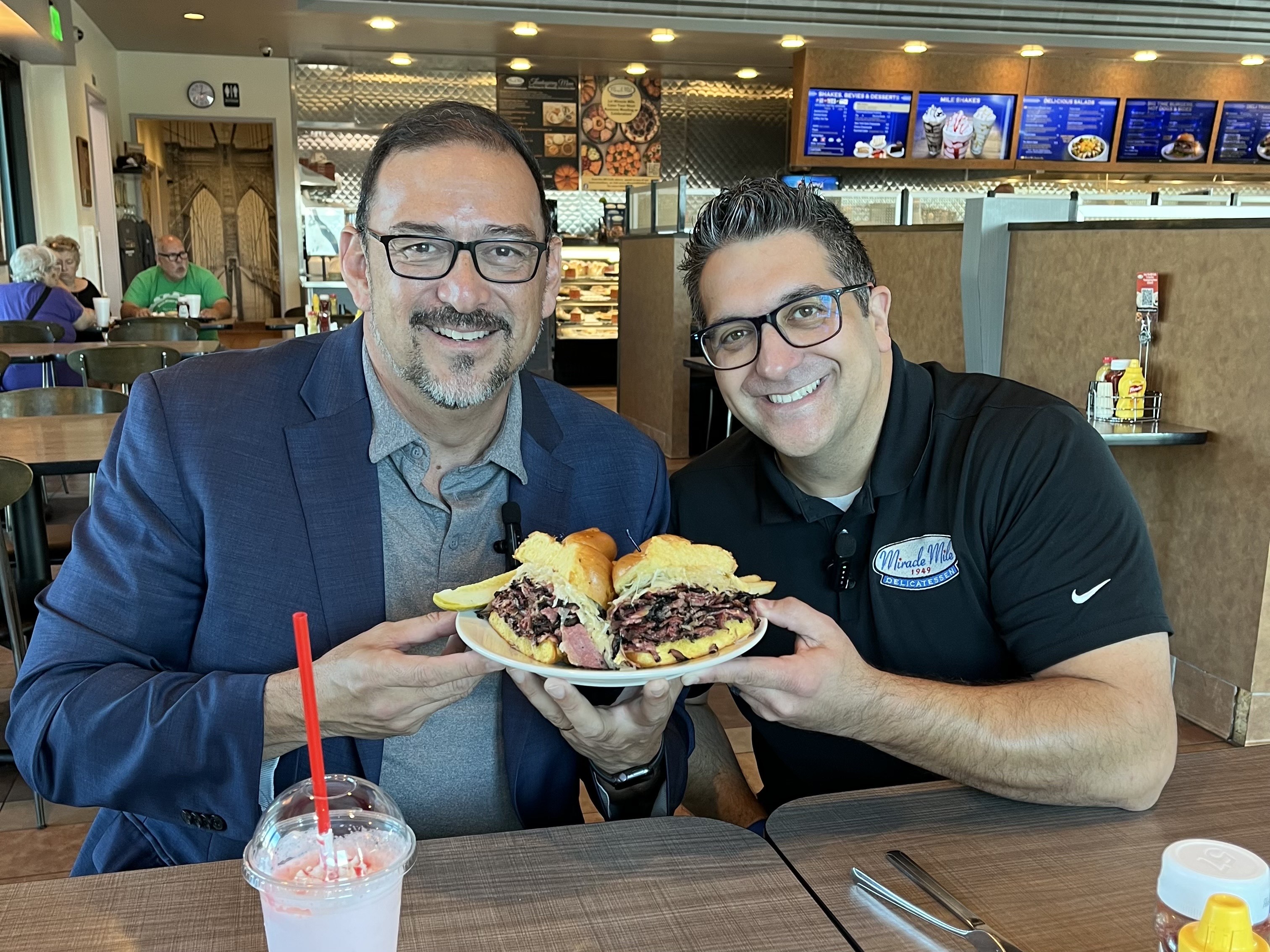
Mykaela Martin

Audio By Carbonatix
As the nation’s food stamps crisis continues this month, the Arizona Secretary of State’s Office is partnering with a local business organization to make sure families that rely on the program don’t go hungry.
In Arizona, one in four children and one in ten adults rely on the Supplemental Nutrition Assistance Program, known as SNAP.
But starting on Nov. 1, the roughly 900,000 Arizonans who use the program lost access to the essential nutrition funding.
Uncertainty created by the federal government’s failings has led local businesses and restaurants, such as Lovebite Dumplings, to step up and offer assistance to Valley residents who normally rely on SNAP. That assistance comes in the form of free or discounted meals, as well as mutual aid.
To share these resources, Arizona Secretary of State Adrian Fontes has partnered with Local First Arizona — a nonprofit that supports independent local businesses — to create a website database of local businesses that are stepping up to bridge the hunger gap.
“I saw a need and I know that Arizonans are, by nature, generous,” Fontes told Phoenix New Times at Miracle Mile Deli on Friday. “I’ve got kids too, and I’ve got friends who are using SNAP benefits. These are critical for folks to be able to live with dignity. There’s no reason why we shouldn’t be able to support folks like this.”
The new website, called the “AZ SNAP Support initiative,” currently lists a dozen Arizona businesses (mostly in the Valley), along with their locations and contribution details. Those restaurants include Lovebite, Olla Olla Crepes, Baked Chemistry Vegan, four locations of Proof Bread, The Coronado and The Pemberton. Tucson’s Kingfisher Bar & Grill is also listed.
“Local businesses aren’t just places to eat or shop, they’re the fabric of our communities,” Local First Arizona CEO Kimber Lanning said in a press release. “We stand with the food banks, mutual aid groups, farms, restaurants and community advocates that are stepping in to fill the gaps and ensure families have access to healthy, nourishing food when they need it most.”
‘Human dignity comes first’
When that need may subside remains unknown, as SNAP’s future is in limbo.
In late October, two federal judges ruled that freezing the program is unlawful. However, President Donald Trump appears to be keen on defying the order. Court filings show that the administration said it would distribute half of the usual funds, but then Trump himself contradicted that statement on Truth Social and said that no SNAP funds would be paid out until the current government shutdown ends.
Hours after the courts ordered the Trump administration to make payments, Fontes also predicted correctly that the president couldn’t be relied on to follow through.
“We’re making lemonade out of the lemons that are coming from Washington, D.C.,” Fontes said. “Just because the court ordered the administration to do it doesn’t mean they’re going to do it. And if there are delays — with a million people in Arizona who use SNAP benefits — what does it take per day to feed that many folks?”
Miracle Mile Deli, while not currently listed on the website, has started its own “pay-it-forward” campaign to help people. Its owner, Josh Garcia, told New Times on Friday that the restaurant will utilize its relationships with local schools to distribute mutual aid.
“The goal is to hopefully get the community involved in making donations and contributions to use so we can give funds directly to Title I schools or local families that are in need,” Garcia said. “We know this is going to get ugly really fast unless something gets done.”
Fontes said he is optimistic that politicians in Washington will eventually realize how important funding SNAP is, but also wary that this crisis could indicate the coming of similar ones in which poor and working-class people suffer.
“I don’t think it’s beyond the scope of reasonableness to think that we might see other social safety nets and systems collapse. Just the threat of it is enough to get people to put politics aside and say, ‘You know what? Human dignity comes first,’” Fontes said. “Until we reach a point of crisis, some of us really take a lot of these safety net systems for granted.”
Businesses interested in joining the list can do so through a portal on the website.